How Safe Is Costa Rica?
Costa Rica has become one of the most popular expat and digital nomad destinations in Latin America, known for its natural beauty, relaxed lifestyle,...
.jpg?width=850&height=478&name=cash(1).jpg)
6 min read
In an era dominated by digital payments and emerging technologies, the use of cash faces fierce opposition from governments and other international institutions.
Despite the narrative of a fight against illegal activities such as money laundering and tax evasion, there lies an obscure intention of increased control and surveillance over people’s lives.
The World Economic Forum wants to restrict fundamental rights such as owning private property. But that’s not everything.
Another of their main goals is for you to have no privacy. Digital payments may be convenient, but cash remains a reliable and essential option, acting as a shield against technocrats and offering other numerous advantages such as:
Immunity to cyber threats, hacking, or technological failures;
Privacy in a world of rising fraud and data collection;
Tangibility and immediate comprehensibility;
Resilience in times of crisis (natural disasters, political unrest, power shutdowns).
And those are only a subset of all the benefits. While the Western world is pushing anti-cash narratives and policies, some countries firmly use cash for a significant portion of their transactions. If you are concerned about your privacy and wish to shield yourself against the growing influence of technocratic powers, here is a list of countries where cash is still extensively used as a mode of payment.
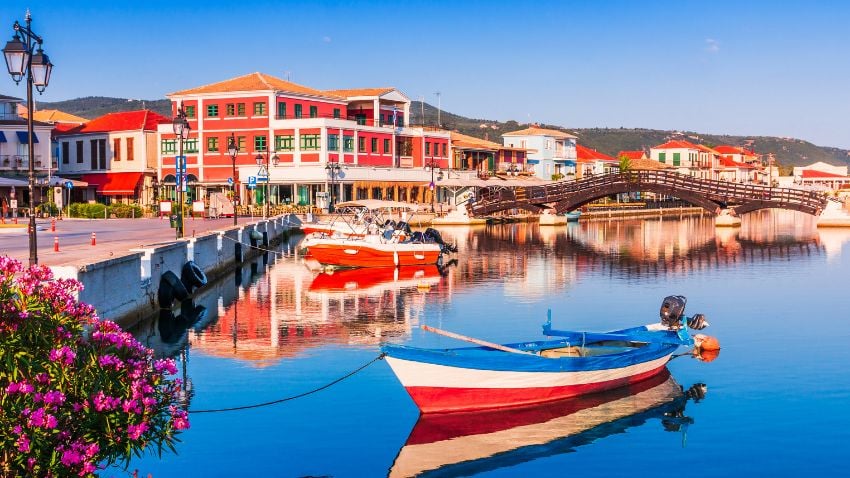
Lefkada, Greece
Number 7 on our list is Greece, which, despite belonging to the EU and the eurozone, is still a society that prefers cash over other modes of payment. As a matter of fact, according to a report by the ECB itself, 56% of Greeks pay their electricity bill in cash. Although businesses are obliged to have a POS machine by law, just like in Brazil, you can find better deals and discounts if you pay in cash.
Not only is Greece a famous tourist destination, mainly thanks to the city of Athens, islands like Mykonos and an appealing Mediterranean climate and excellent cuisine, but it’s also a surprisingly affordable country. The minimum wage is €910 ($967 USD), and as a way of combating an ongoing economic crisis and astronomical debt, the country launched its own Golden Visa program.
The extensive usage of cash may be incentivized by the strict labour regulations, which push some businesses and workers to operate informally, as well as the presence of a significant informal economy in the country. Sometimes, Greeks engage in informal work to supplement their income or avoid taxes. Another country with a similar situation is Spain. Finally, reasons like security concerns and a preference for financial privacy contribute to the extended use of cash, even among youngsters.
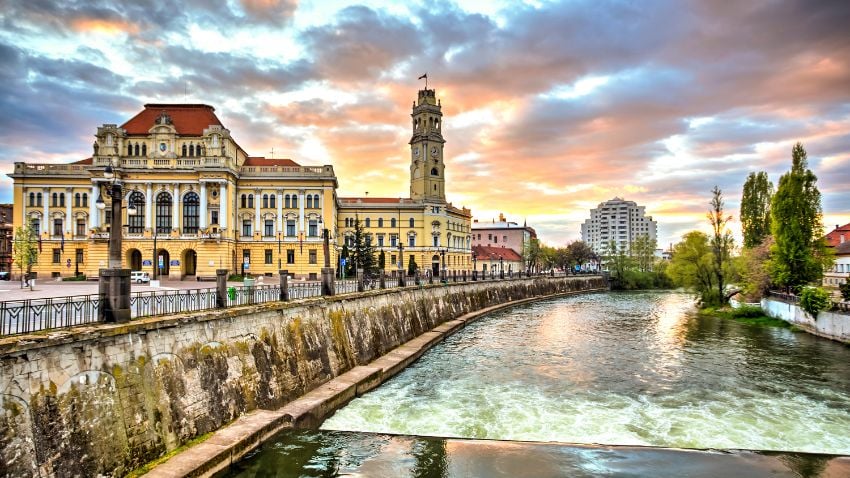
Oradea city, Romania
Number 6 is Romania, which is another EU member but has its own currency, the Romanian leu. Nearly 80% of payments are carried out in cash, and only 42% of adults possess a bank account, which makes Romania a very cash-dependent country and a bastion of financial privacy in an increasingly technocratic and potentially cashless Europe.
The usage and acceptance of cash have been a core component of the country’s financial system for many years despite the gradual shift toward digital payment methods. Many Romanians still consider cash king and prefer to carry cash for daily expenses.
A few reasons why Romanians prefer cash are cultural habits, a sense of security and anonymity in transactions. In fact, people of various ages are accustomed to carrying out their transactions, especially among older generations and people in rural areas.
Additionally, according to Merchant Machine, there are approximately 64 ATMs available per 1,000 adults. These statistics indicate a lack of alternative payment options that necessitate a bank account, yet they also highlight the fact that a significant number of individuals who could utilize cards or electronic payments are opting for cash transactions.
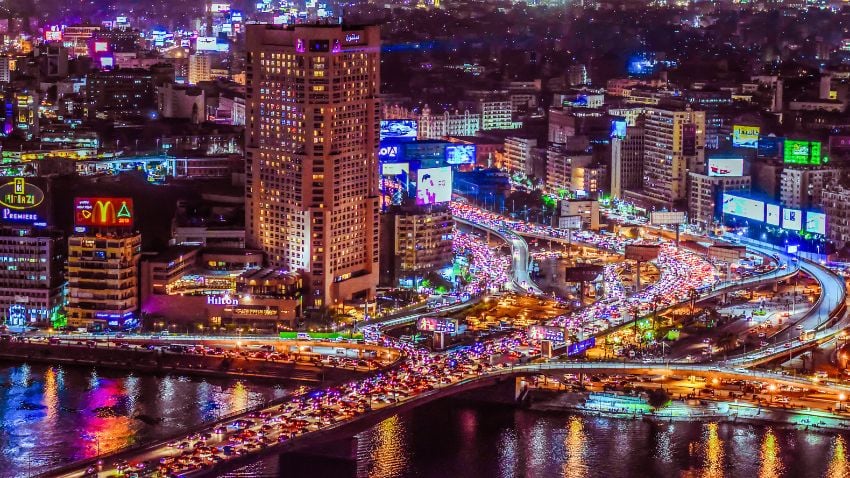
Cairo, Egypt
Now, let’s focus on Northern Africa to find number 5 on our list, Egypt. This country has a life-long tradition of cash usage in day-to-day transactions, while digital payments, let alone credit and debit cards, are simply not accessible because around 67% of the people are unbanked and rely primarily on cash, according to a World Bank Report. Cash is viewed as a tangible representation of wealth and financial security, offering Egyptians a sense of reliability and control.
Small businesses, street vendors, local markets, and informal sectors heavily rely on cash transactions. This is especially true in areas with poor formal banking infrastructure, such as rural regions and lower-income segments. Cash acts as a practical and accessible means of conducting everyday transactions in these areas, filling in the gap between the formal and informal economies.
The high number of unbanked Egyptians also contributed to the extensive cash usage. The lack of access to formal banking services and digital payments pushes people and multiple businesses to conduct transactions in cash. Plus, cash helps small vendors and merchants surpass formal regulations and maintain their and their client's privacy.
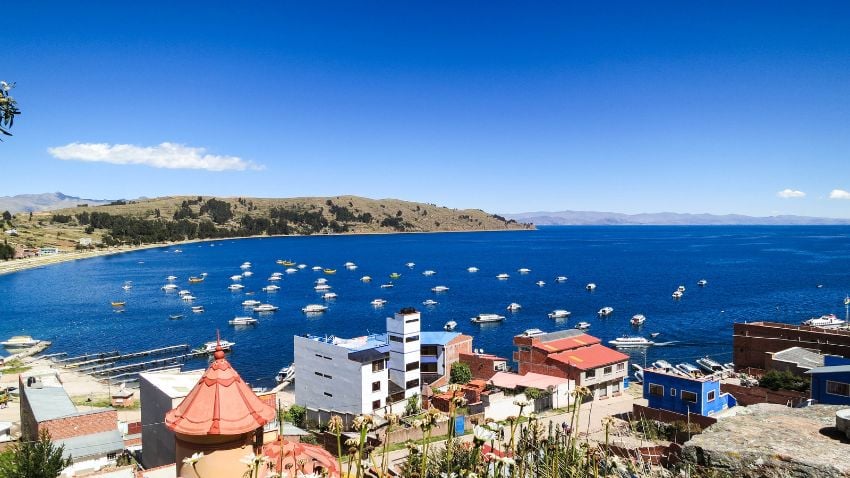
Lake Titicaca, Copacabana, Bolivia
Bolivia, a landlocked South American country, makes it to spot number 4. Despite being a developing country with around 90% of its labour force in the informal economy and without health insurance, Bolivia has surprised us with protests (article in Spanish) against technocratic measures such as vaccine passports. With a low cost of living and a minimum wage of around $325 USD, Bolivia can be an appealing expat destination.
According to a 2018 report published by the International Monetary Fund (IMF), Bolivia has the highest informal economy in the world, accounting for 62.3% of its total economy.
Therefore, the informal economy is crucial to Bolivia’s economic landscape. Multiple small businesses, street vendors and informal markets operate on a cash basis.
The limited banking infrastructure keeps many Bolivian citizens unbanked, so many Bolivians are prompted to resort to cash for daily transactions. Cash helps engage in trade, support local businesses, and conduct transactions.
Alternative payment methods are still not widely embraced by Bolivians, who are accustomed to using cash to make payments and receive funds. Therefore, you can be sure that your financial privacy will be well-protected in this beautiful landlocked country.
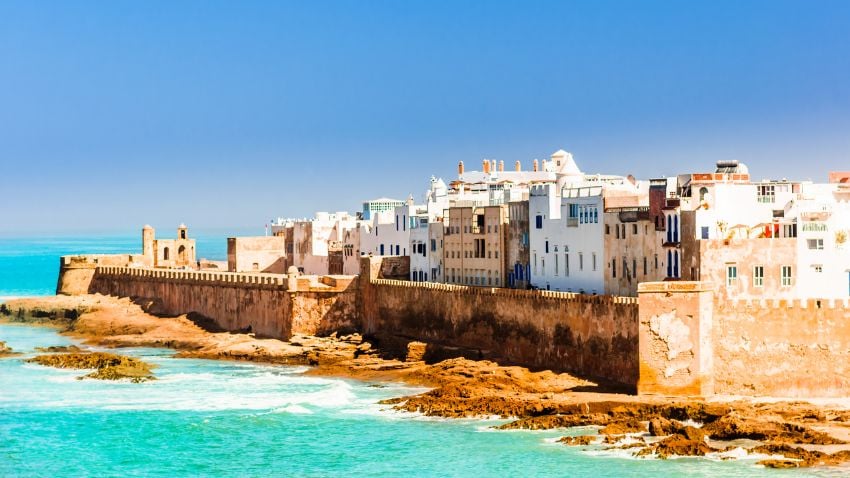
Essaouira, Morocco
Now, back to Northern Africa, we find number 3 on the list, Morocco. According to a report conducted by Merchant Machine, 74% of all payments are performed in cash, only 29% of the population have a bank account, and the use of credit cards is almost non-existent. The country's central bank, Bank Al-Maghrib, introduced a mobile payment and money transfer service in 2018, which operates through an e-wallet system linked to users' phone numbers.
However, many small businesses, street vendors, and informal marketplaces operate predominantly on a cash basis, allowing merchants to make money despite the lack of resources and infrastructure to carry out digital payments. On top of that, thanks to wide cash usage, Moroccans can engage in commerce, conduct transactions, support local businesses, and participate in the country’s economy.
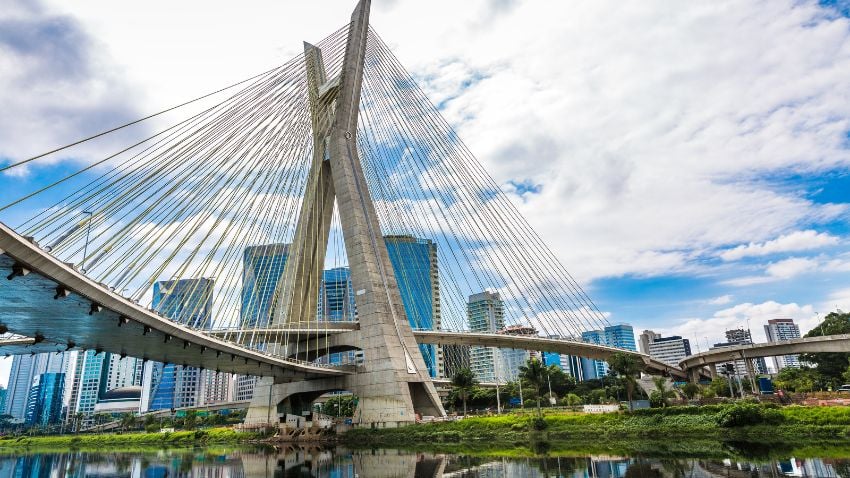
Estaiada Bridge in Sao Paulo, Brazil
Back to South America, number 2 on our list is Brazil. With a population of over 210 million, around 55 million adults remain unbanked, and the informal economy is huge in this country. Brazil is a vibrant and diverse country in South America, and it’s the country with the largest GDP in the Latin America and Caribbean region. Despite technological advancements worldwide, cash plays a crucial role in Brazil’s economy, even with businesses offering sales if you pay in cash.
Cash is the preferred mode of payment in Brazil, followed by checks, credit and debit cards. Physical money gives Brazilians a sense of security and privacy and helps them manage their spending and take control of their finances. Furthermore, we cannot neglect the cultural aspect. Cash transactions are integral to Brazil’s daily life and commercial landscape. Many local businesses, smaller establishments and street vendors mainly accept cash.
Brazil might embrace some technologies to facilitate access to banking and digital payments, but it’s evident that cash continues to hold its position as a crucial part of Brazil’s payment culture.
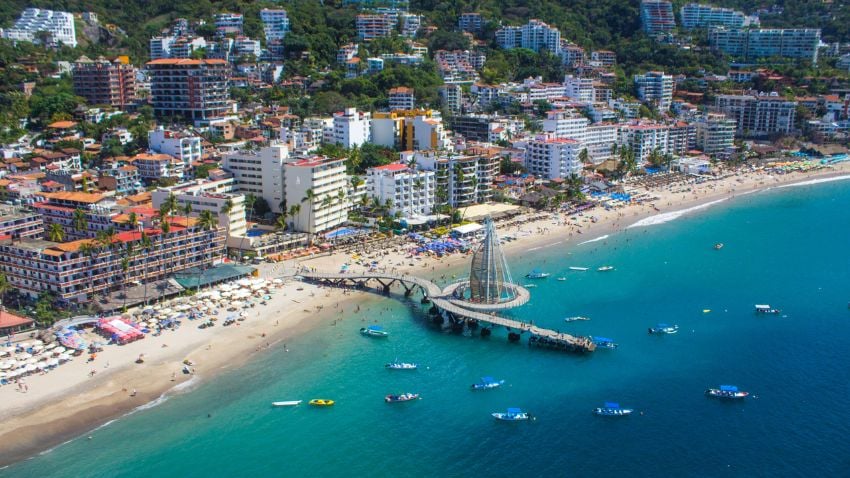
Puerto Vallarta, Mexico
And finally, at number 1, we can find Mexico. Despite the government's efforts to diminish the usage of cash, around 78% of Mexicans over 18 years of age use cash for payments over 501 pesos. In purchases below 500 pesos, 90.1% of payments are conducted in coins and notes, which showcases how ingrained cash is in Mexican society.
In fact, according to an article by El Economista, a large part of the population that is accustomed to using cash does so because they consider it more practical, easy, or fast. In a smaller proportion, people use cash because it is their only form of payment, they believe it is safer, or because some businesses sometimes do not accept cards. As you can tell, banking and payment infrastructure are lacking in Mexico, which makes this country a bastion of financial privacy.
Like many countries in this list, the informal economy prevails. Informal businesses, street vendors and local markets rely on cash. Intending to fight against money laundering and tax evasion, Mexico introduced a 3% tax on financial bank transactions, but in reality, tax revenue has stayed the same. The tax incentives for using digital money are slim to none, so cash remains a means to enable unbanked individuals to participate in economic activities and access goods and services.
This extensive usage of cash, as well as the country’s beauty, food, and people, make Mexico a great expat destination. That’s why we put together a 477-page book to help expats like you move to Mexico and benefit from everything it offers.
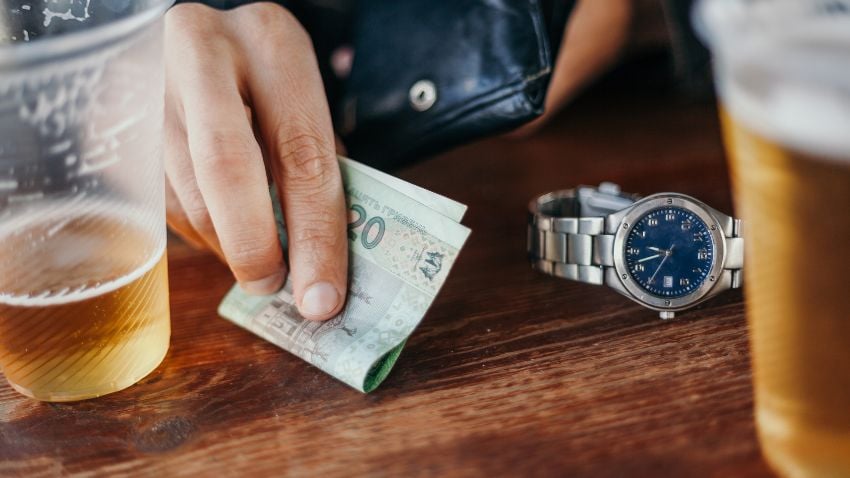
Cash is one of the safest payment methods out there
In conclusion, despite the rapid rise in digital payment technologies and even anti-cash narratives, cash remains a main element in the economies of multiple countries around the globe. From cultural preferences to limited banking services to the strong presence of informality, cash is the preferred mode of payment in regions like Latin America, Africa and even Europe.
Cash is a great shield against technocrats who wish to erase privacy and seize funds for ideological reasons. If you want to protect your financial privacy and benefit from a high-level expat lifestyle, consider moving to one of the countries on the list.
If you’re also concerned about your digital secrecy and preventing your phone from spying on you, check out Above Phones and get $50 USD off your purchase.
If you want the best intel from the expat world, including profitable offshore opportunities, little-known tax-saving strategies, and hard-won insights on immigration, passports, and Plan-B residencies, all delivered to your inbox every single week, then join our daily correspondence, EMS Pulse®. Currently enjoyed by over 84,000 expats and expat-hopefuls worldwide. Fill in the form below to join our newsletter free:

Written by Mikkel Thorup
Mikkel Thorup is the world’s most sought-after expat consultant. He focuses on helping high-net-worth private clients to legally mitigate tax liabilities, obtain a second residency and citizenship, and assemble a portfolio of foreign investments including international real estate, timber plantations, agricultural land and other hard-money tangible assets. Mikkel is the Founder and CEO at Expat Money®, a private consulting firm started in 2017. He hosts the popular weekly podcast, the Expat Money Show, and wrote the definitive #1-Best Selling book Expat Secrets - How To Pay Zero Taxes, Live Overseas And Make Giant Piles Of Money, and his second book: Expats Guide On Moving To Mexico.
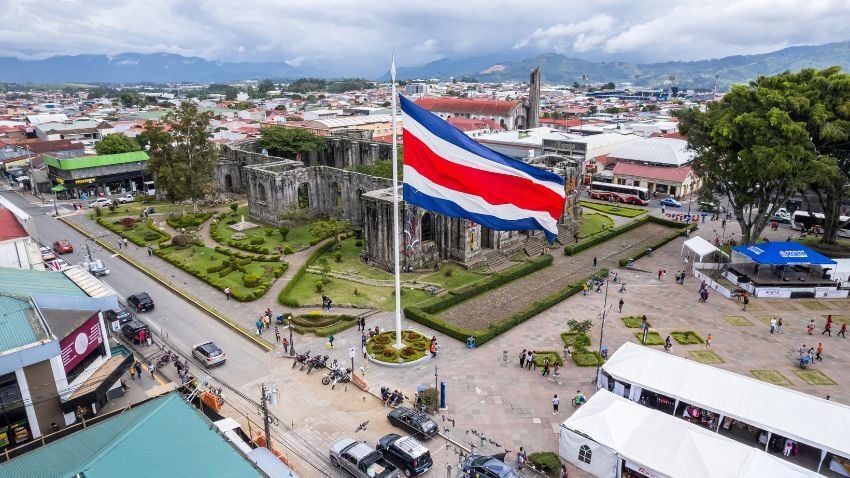
Costa Rica has become one of the most popular expat and digital nomad destinations in Latin America, known for its natural beauty, relaxed lifestyle,...

Mexico remains one of Latin America’s most compelling destinations, especially for North Americans. More than a million expats call it home, and tens...

South Korea is far more than K-pop and K-dramas. It is a country known for outstanding food, from bustling street markets to high-end dining, as well...